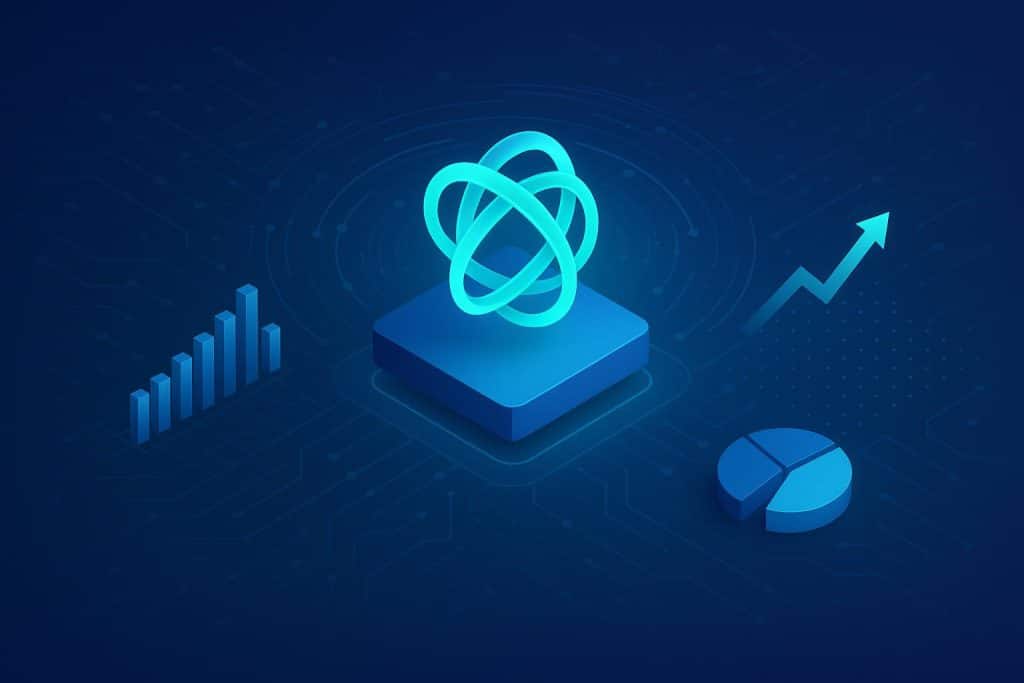1. Business Intelligence at a Breaking Point
Modern enterprises depend on business intelligence (BI) systems to parse trends, forecast markets, and refine strategies. Yet as data sets multiply—pulled from customer behavior, supply chains, and financial indicators—traditional BI tools struggle to keep pace. Algorithms designed for classical systems reduce complexity into manageable patterns, but much of the nuance gets lost. Quantum AI introduces a new architecture for processing information, one that treats complexity as a feature rather than a limitation.
2. How Quantum AI Changes the Framework
Quantum computing operates on principles of superposition and entanglement, which allow calculations across multiple states simultaneously. When paired with AI’s adaptive learning models, the outcome is an engine that can evaluate data in parallel, map interdependent variables, and produce insights in less time.
For business intelligence, this creates sharper forecasts, more granular segmentation, and more robust risk assessments. What once required days of computation can be completed in minutes, without flattening the richness of the underlying information.
3. Trading as a Testing Ground
The most visible demonstration of these capabilities is in financial markets. Quantum ai is being deployed in trading environments where speed, precision, and adaptability matter most.
On trading desks, it helps institutions rebalance portfolios in real time, optimize hedging strategies, and identify subtle correlations between assets. Unlike traditional systems that simplify inputs into single-variable models, quantum AI interprets overlapping signals from currencies, equities, and even crypto markets at once. For traders, this means fewer blind spots and greater resilience in volatile conditions.
The lessons learned in trading extend directly to business intelligence. The same principles that allow markets to be understood with more nuance also enable better forecasting in consumer demand, logistics, and operations.
4. Business Applications Beyond Finance
Quantum AI’s role in BI isn’t limited to trading strategies. In retail, it enables hyper-personalized marketing by analyzing patterns across millions of customers without reducing them to crude averages. In logistics, it optimizes distribution networks, detecting inefficiencies classical algorithms overlook. In healthcare, it accelerates drug discovery by identifying promising molecular interactions earlier.
The unifying theme is adaptability. Instead of providing static reports, quantum AI systems adapt to changes in data, producing living insights that evolve with circumstances.
5. The Future of Business Intelligence
The future of BI is not about dashboards becoming more colorful or reports more detailed—it’s about embedding intelligence that responds dynamically to change. Quantum AI will increasingly serve as the hidden engine behind BI platforms, shaping outcomes without drawing attention to itself.
As access expands through cloud services, even smaller businesses will be able to integrate quantum-enhanced intelligence into their decision-making. The result will be a quiet, but profound, shift: business intelligence that mirrors the complexity of the real world rather than reducing it.
FAQ: Quantum AI and Business Intelligence
Q: What is quantum AI in business intelligence?
A: It’s the use of quantum computing combined with AI models to process complex business data more efficiently, producing sharper forecasts and insights.
Q: How does trading connect to business intelligence?
A: Trading is the proving ground—where quantum AI demonstrates its ability to interpret fast-moving, complex data. Those lessons extend to BI across industries.
Q: Is it only for large corporations?
A: No. Cloud access is bringing these tools to mid-sized businesses and, over time, to smaller enterprises as well.
Q: Does quantum AI replace existing BI systems?
A: No. It enhances them by providing deeper, faster analysis of datasets classical tools can’t fully handle.
Q: What’s the long-term impact on business?
A: Business intelligence will become more adaptive, more resilient, and more representative of real-world complexity—quietly changing how organizations make decisions.
